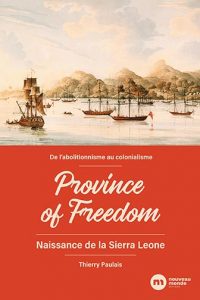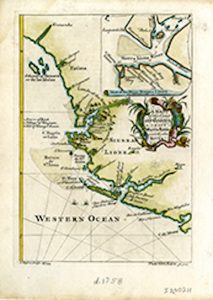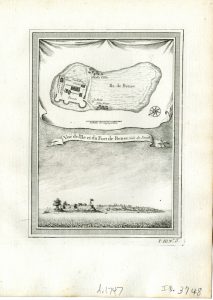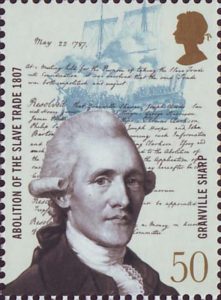“Province of Freedom” is the name of the agricultural and mercantile colony that was established in 1787 by a British charitable organization. It was to be settled by those known as the “Black Poor”: former slaves who were living in extreme poverty in London. Direct democracy and self-management were given a large role in the rules and regulations of the province, which was to have a black leader. However, as a result of poor planning, it faced material difficulties and was undermined by mismanagement. The experiment would be short-lived.
The Province of Freedom was recapitalized and, in 1791, became the Sierra Leone Company. This time, there would be no self-management; instead, the Company was run with an authoritarian approach over seen by whites. It took in slaves from America, who, at the beginning of the War of Independence, had been promised emancipation if they fought with British loyalist troops against the revolutionaries. With the British defeat, they were evacuated to Nova Scotia, where they lived in desperate conditions. Among the first pioneers to settle in what was called “Free Town” — a name that would later come to be written as a single word — was Harry Washington, a fugitive slave from the plantation owned by none other than George Washington, a founding father of the United States.
The Sierra Leone Company achieved neither political and social stability — for the colonists resented the unfulfilled promises that had been made to them — nor financial viability. Eventually, in 1808, it was taken over by the British Crown and became acolony in the modern sense of the word.
This book describes these events in terms of two acts: the Province of Freedom as act one and the Sierra Leone Company as act two. It sets their story within the historical context of the eighteenth-century debates on abolitionism and colonization.
It concludes with the thesis to which the entire book has led: the Crown’s seizure of the Sierra Leone colony provoked the general movement towards hinterland takeover and settlement. Through the latter, the “three Cs” policy (Christianity, commerce, and civilization) won out over the positions of certain Enlightenment authors who were opposed to colonization. This movement culminated in the 1884 partitioning of Africa at the conference of Berlin.
The book pays tribute to the heroes of the Province of Freedom and the Sierra Leone Company, many of whom remain anonymous: men and women who had been enslaved, who managed to escape, and who embarked on the extraordinary adventure of this perilous utopia. Harry Washington and some of his companions had fought to return to Africa, only to have to struggle for freedom once again; this book seeks to treat them with the dignity that is their due.
Province of Freedom.
Thierry Paulais
Nouveau monde, publisher in Paris
224 pages
2021




